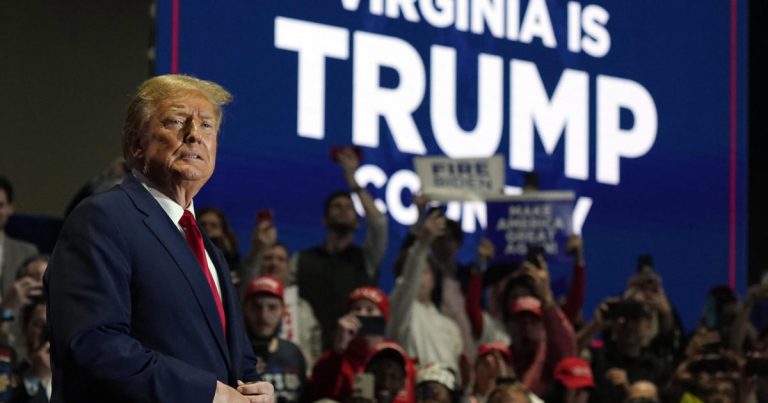RFK Jr. trying to be removed from ballot in 10 states despite opposition in battlegrounds
Robert F. Kennedy Jr.’s political journey took an unexpected turn as he suspended his campaign and endorsed former President Donald Trump. The decision came after Kennedy expressed concerns that his presence on the ballot in crucial states could potentially thwart Trump’s chances against Vice President Kamala Harris in the upcoming election.
Kennedy, once a Democrat who transitioned to an independent candidate, faced the dilemma of either influencing the election outcome or stepping down from the race. With the stakes high and the pressure mounting, Kennedy made the bold choice to withdraw from contested battleground states where his candidacy could swing the results towards the Democrats.
State by State Update on Kennedy’s Ballot Access:
Arizona:
Kennedy managed to retract his name from Arizona’s ballot by filing relevant paperwork just before suspending his campaign, ensuring he won’t appear on any ballot in the state.
Florida:
Florida honored Kennedy’s request to withdraw his candidacy, marking the success of his efforts after accepting the Reform Party’s nomination amid the ballot access struggle.
Georgia:
A recent court ruling in Georgia declared Kennedy as “not qualified” due to concerns over his New York residency, prompting a review by the secretary of state’s office to determine his ballot access status.
Michigan:
Despite attempts to withdraw, Kennedy remained on the Michigan ballot, given his ballot access through the Natural Law Party, which exempted him from the signature collection required for independent candidates.
Nevada:
After missing the deadline to withdraw his name, Kennedy was removed from the Nevada ballot following a court order that ended a legal battle over his eligibility. Initially, his petition was invalidated due to non-compliance with the state’s ballot access laws.
North Carolina:
Kennedy’s presence on the North Carolina ballot poses a challenge for potential withdrawal, given the advanced stage of ballot preparation. Any changes to his nomination by the We The People Party would require a thorough consideration by the state board.
Ohio:
Kennedy’s withdrawal request in Ohio coincided with his qualification for the ballot, leading to his removal as confirmed by the secretary of state before the ballot certification deadline.
Pennsylvania:
A successful plea by Kennedy saw his withdrawal from the Pennsylvania ballot, following a legal challenge from Democratic activists regarding the validity of his petition.
Texas:
Kennedy promptly withdrew his name from the Texas ballot upon suspending his campaign, a swift decision in alignment with his strategic calculations.
Wisconsin:
Despite Kennedy’s request to withdraw being rejected, the Wisconsin Elections Commission certified his presence on the ballot under state law provisions that limit withdrawal in certain circumstances.
Conclusion:
The intricate dance of ballot access politics intertwined with strategic withdrawals and legal battles showcases the dynamic nature of the electoral landscape. While Kennedy’s presence on the ballot in select states lingers as a topic of debate, his decision to endorse Trump reflects the strategic considerations underpinning his political maneuvering.
As the electoral drama unfolds, the spotlight remains on the evolving dynamics between candidates, parties, and ballot access regulations, shaping the narrative of the upcoming election season. With each state presenting a unique challenge and opportunity for political actors, the intricacies of ballot access play a crucial role in shaping the electoral outcomes.
Stay tuned for further updates on the evolving saga of Robert F. Kennedy Jr.’s ballot access and its impact on the electoral dynamics shaping the upcoming election.








